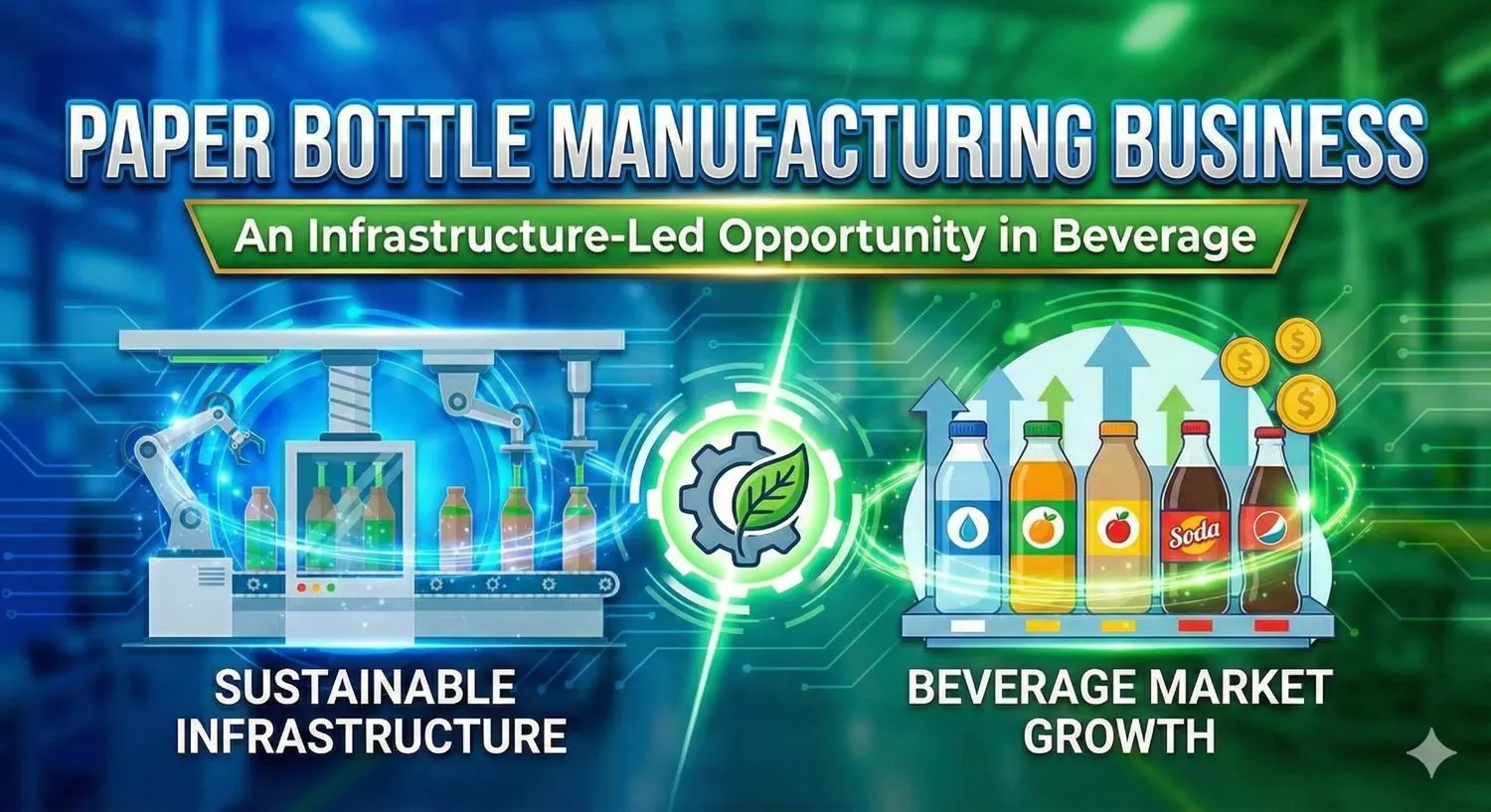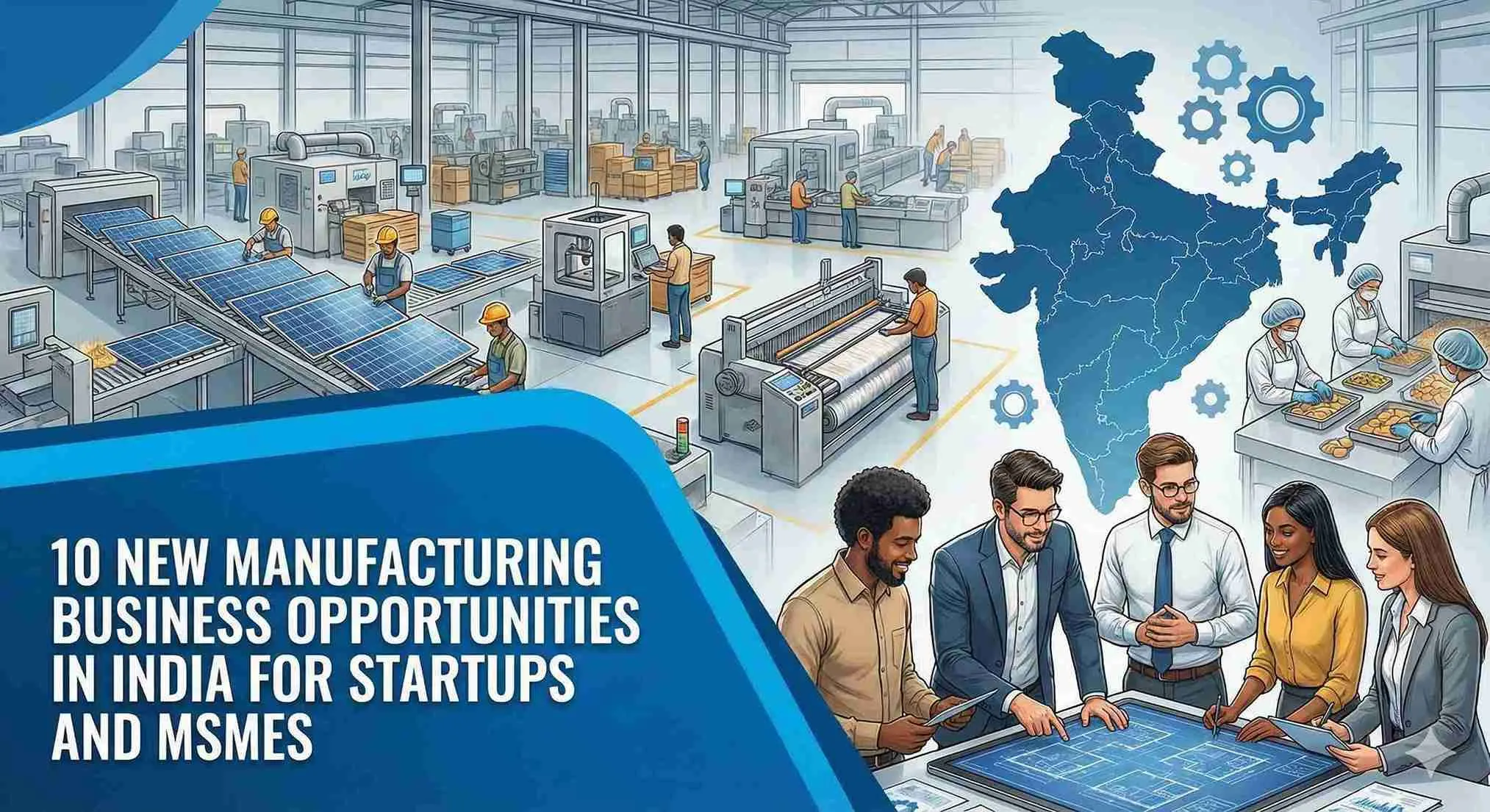It is the manufacturing industries that first embrace innovation and bring it to their economy and daily life. As reported in Transparency Market Research, the transformation of this sector by technology, sustainability, and global trends has pushed the manufacturing industries into revolutionary changes. This article attempts to list the recent developments and some insights into the manufacturing trends that continue to evolve.
Contents
- 0.1 Automation and Smart Factories: The Digital Revolution
- 0.2 Sustainability: Green Manufacturing and Circular Economy
- 0.3 Advanced Materials: Revolutionizing Product Design
- 0.4 Global Supply Chain Resilience: Adapting to Market Volatility
- 0.5 Customization and Personalization: Meeting Consumer Demands
- 0.6 Frequently Asked Questions (FAQs)
- 0.6.1 What is the present trend in shaping the manufacturing industries?
- 0.6.2 How does Transparency Market Research serve the understanding of the manufacturing industries?
- 0.6.3 Why is sustainability important in manufacturing?
- 0.6.4 How have advanced materials transformed the manufacturing industries?
- 0.6.5 How do manufacturers prepare for disruptions in supply chains?
- 1 Frequently Asked Question
Automation and Smart Factories: The Digital Revolution
Smart factories are revolutionizing the manufacturing industry. By automated systems, manufacturers have automated practically everything in routine production lines using AI, IoT, and, of course, robotics. Their integration eliminates redundancy and time-consuming operations while improving efficiency. For example, dealers with a preventive maintenance program based on prediction use AI-enabled components to prevent the failure of the machinery before the breakdown occurs and reduce measured inactivity.
IoT devices are used to collect current data in real-time and provide a basis for actions that should improve a process. According to a report released by Transparency Market Research, more than half of world’s manufactures will be early adopters in 2030, moving them toward advanced automation systems.
The biggest success in this regard is that of Gigafactories built by Tesla which uses robotics extensively so that productivity can be enhanced and maintained without compromising precision. As more businesses begin to work towards digitalization, redefining production processes will go a long way to increasing scalability.
Also Read
Profitable Business in Automobile Sector
Related Project Reports
Sustainability: Green Manufacturing and Circular Economy
Manufacturing companies are no longer permitted to consider sustainability optional. The transformation of the business model to sustainable practices, for example, is also required by more stringent environmental laws and by consumer demand for green products. A very promising circular economy model is also in use, eliminating waste and reusing resources in a way that is effective.
Green manufacturing practices, including the adoption of renewables and waste reduction, will be central to the business strategies of companies, according to Transparency Market Research. Companies such as Unilever and Apple have set high targets to make their entire operations carbon neutral.
There has also been an increase in investments in green technologies, such as solar panels and machinery that consumes less energy. Industries are also using less biodegradable materials and recycling initiatives, all of which contribute to reducing an individual’s carbon footprint. Adopting sustainability gives manufacturers not only the protection of the land but also the edge needed in the market.
For in-depth resources on starting sustainable manufacturing ventures, read How to Start Recycling Businesses on NIIR’s blog.
Advanced Materials: Revolutionizing Product Design
Advanced materials are changing the landscape of product design for manufacturing sectors right through lightweight composites to bio-based plastics. This enables the manufacturers to come up with better, cheaper and even greener products.
Companies like aerospace, automotive, and electronics lay emphasis on the application of advanced materials, according to the Transparency Market Research report. For example, graphene-a steel stronger than steel yet incredibly light-finds its applications in the batteries and flexible displays.
Carbon fiber-reinforced polymers are taking the place of usual materials in construction due to their high strength and durability. These technological advancements will improve product quality and reduce production costs, which would benefit both parties: business, as well as customers.
Manufacturers interested in leveraging the potential of advanced materials will have to increase their spending on research and development along with sourcing new suppliers to retain a competitive edge.
Read Our Books
- Business Ideas for Startup in Drugs & Pharmaceutical Industry with Project Profiles (3rd Edition)
- Profitable Small Scale Industries- Money making Business Ideas for Startup (when you don’t know what industry to start)-2nd Revised Edition
- The Complete Technology Book on Pesticides, Insecticides, Fungicides and Herbicides (Agrochemicals) with Formulae, Manufacturing Process, Machinery & Equipment Details 4th Revised Edition ( New Arrival )
- Select & Start Your Own Industry (4th Revised Edition) ( Best Seller )
Global Supply Chain Resilience: Adapting to Market Volatility
Emerging global scenario and global political tensions have indicated the exposure of the whole manufacturing industry supply chains to vulnerabilities in a new paradigm. It has made manufacturers incline towards resilience and flexibility in their supply chain strategies.
As per Transparency Market Research, trends such as nearshoring and regionalization have gained momentum. Companies are factoring distances into their production systems to control excessive dependency on very long ones with extremely complicated supply chains. For example, this would mean that industries located in Europe and North America actually increase their local manufacturing capacity, thus reducing overseas operational risks.
Technological advancements-such as blockchain and real-time data analytics-are significant enablers in creating visibility in supply chains. Blockchain would ensure traceability and transparency in the sourcing of materials, while data analytics would provide quick decision-making while disruptions occur. Manufacturers can maintain themselves against future uncertainty by adopting such measures.
For additional insights into supply chain innovations, explore this article on Global Supply Chain Trends by McKinsey & Company.
Customization and Personalization: Meeting Consumer Demands
But with modern consumerism comes the entire push toward mass customization among manufacturing industries-in that they have personalized products fit for specific needs. Advanced technologies such as 3D printing and AI-inherited design pave the way to allow manufacturers to offer personalized solutions at scale.
3D printing is no longer restricted to the confines of a single industry. As indicated in reports released by Transparency Market Research, 3D printing is venturing into industries such as healthcare and automotive. While prosthetics and even dental implants can be customized precisely for individual specifications, so vehicles are now engineered by automakers using AI to offer custom features down to aesthetic choices.
This process not only increases customer satisfaction but also creates brand loyalty among consumers. The catch, however, is that it requires investment in flexible manufacturing systems and software solutions. For the sake of provision comfort, competition will be tight in the provision of personalized products.
Also Read:
Conclusion
Transparency Market Research explains that the manufacturing industry is one of the oldest and widely known ones, which focuses on innovation, sustainability, and consumer-centricity. From smart factories to advanced materials, manufacturers are embracing the trends promising efficiency and resilience.
Adaptability is the business need of the hour. Invest in disruptive technologies to embrace change. Organizations such as NIIR Project Consultancy Services are pioneers supporting entrepreneurship and manufacturers towards success in ever-changing environments. Harness your power through their resources towards powering your journey in this industry.
Frequently Asked Questions (FAQs)
What is the present trend in shaping the manufacturing industries?
The present trends in manufacturing include automation and smart factories, green manufacturing, advanced materials adoption, resilience in supply chains, customization in products according to consumers.
How does Transparency Market Research serve the understanding of the manufacturing industries?
It also offers a unique analysis report regarding the products and markets that possess the ability of deep analysis and market trends in terms of innovation, challenges, and opportunities for growth in a manufacturing environment.
Why is sustainability important in manufacturing?
Sustainability ensures lesser impacts on the environment, adhering to the regulatory norms, and enabling one’s business to cater to the consumers interested in buying environmentally friendly products, resulting in higher reputation and better competitive stance for the company.
How have advanced materials transformed the manufacturing industries?
Advanced materials, including graphene and carbon fiber, envision technological advancement in all areas, construction, ramping up supply chains, automotives, space, and light-weight components of high performance by improving the durability of products while reducing costs of production.
How do manufacturers prepare for disruptions in supply chains?
In the light of strengthening resiliency, manufacturers are moving forward shoring efforts, putting money into processes that make real-time data analyses possible, adopting blockchain technology for increased transparency, and developing flexible supply models to adapt more quickly to market changes.
Contact Us
Frequently Asked Question
What are the key emerging trends in manufacturing industries?
Major trends include automation and smart factories, sustainable and green manufacturing, use of advanced materials, resilient supply chains, and customized production to meet consumer demand.
Why is automation important for modern manufacturers?
How does sustainability impact manufacturing operations?
Sustainability reduces environmental impact, meets regulatory requirements, cuts waste, and strengthens brand reputation while giving companies a competitive edge.
What role do advanced materials play in manufacturing?
Advanced materials like graphene and carbon fiber improve product performance, decrease weight, and lower production costs across sectors like aerospace, automotive, and electronics.















